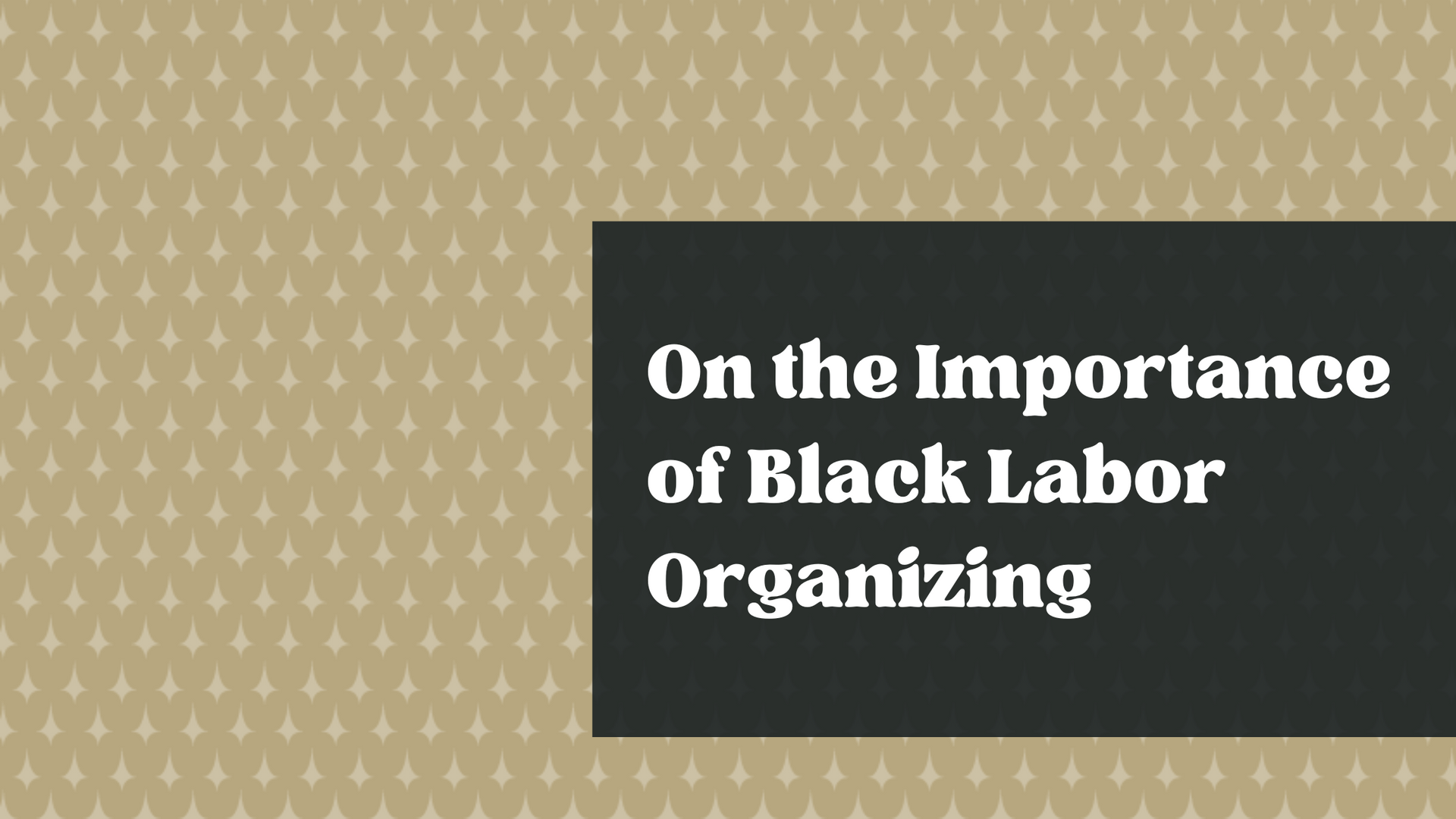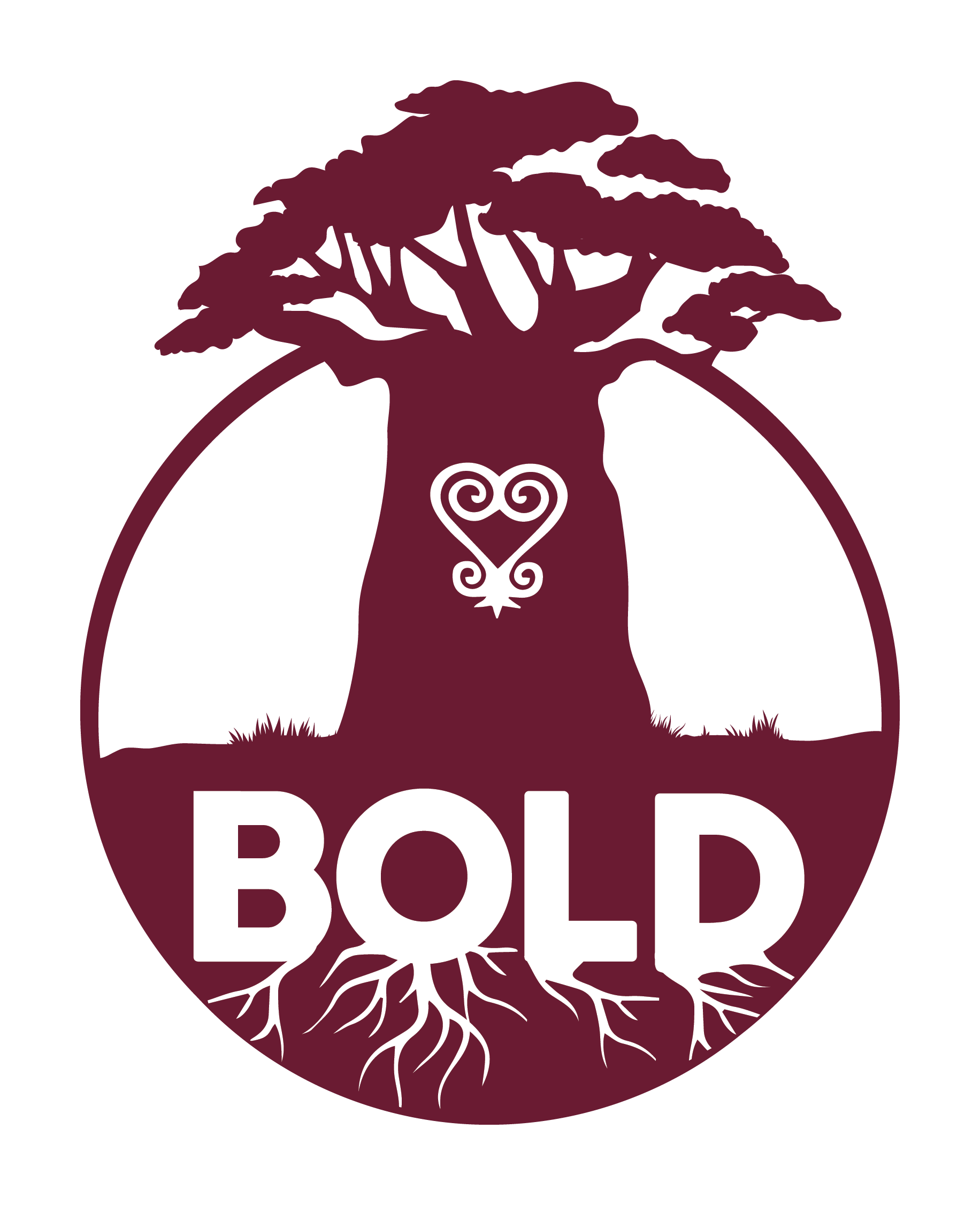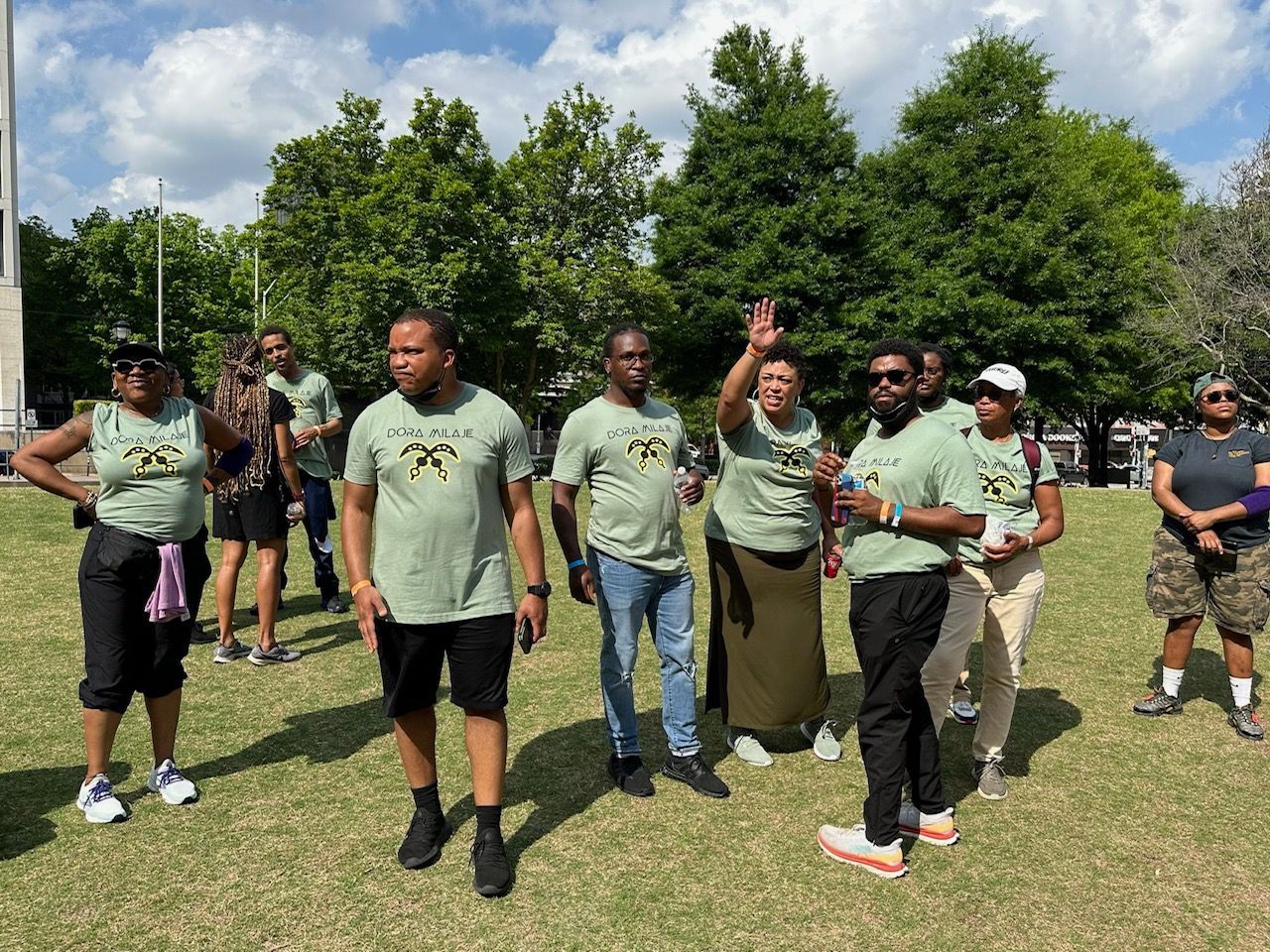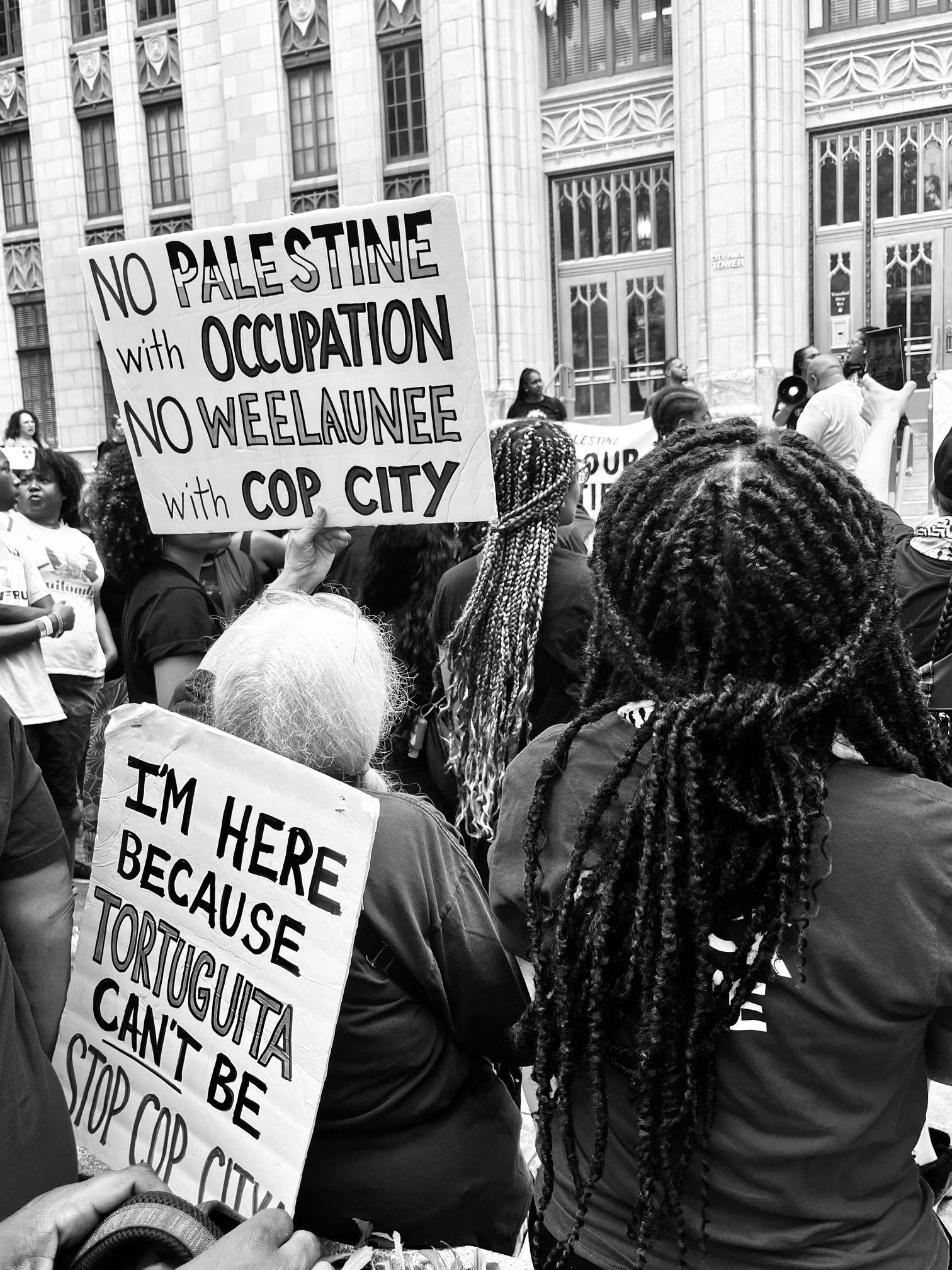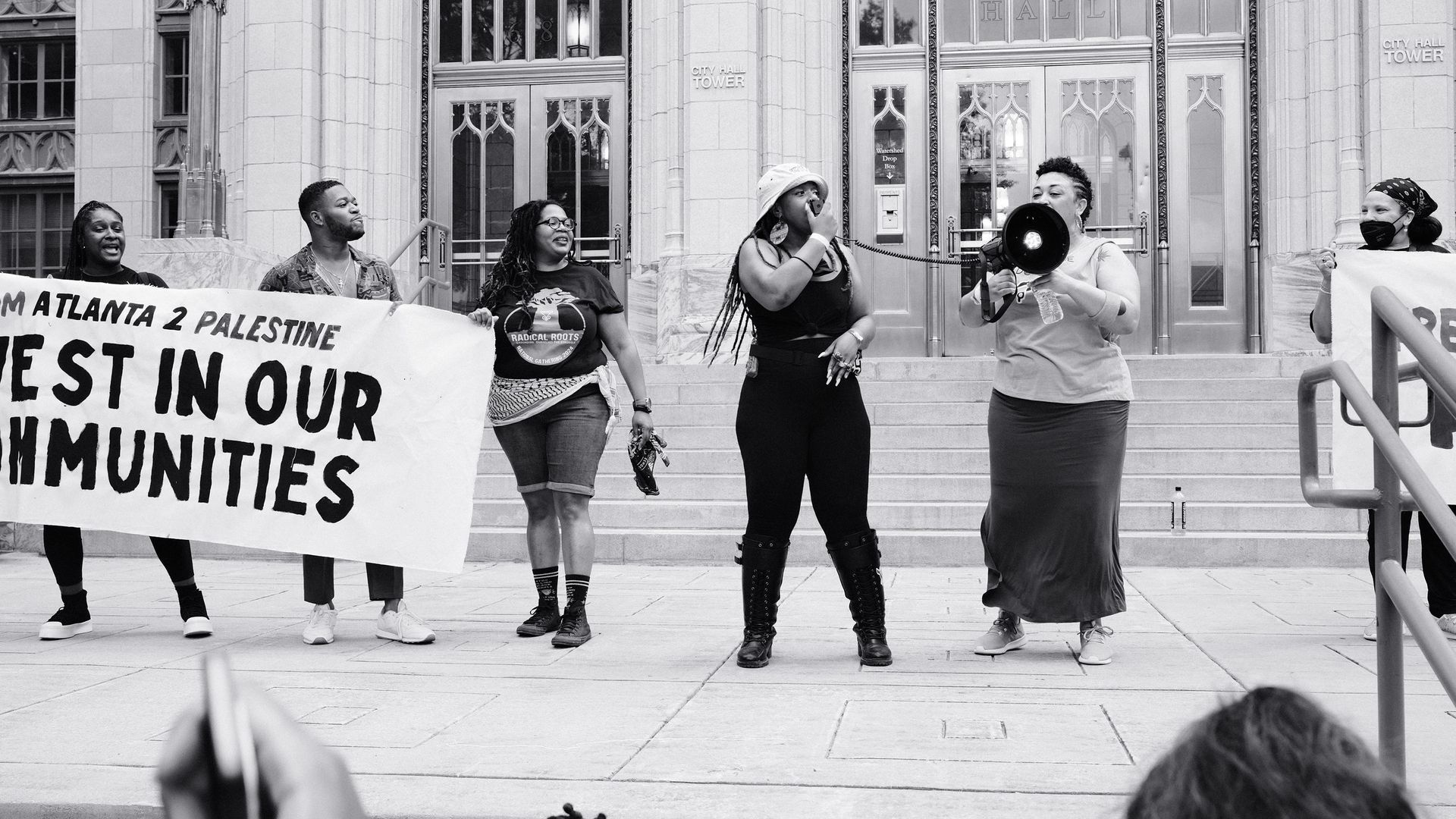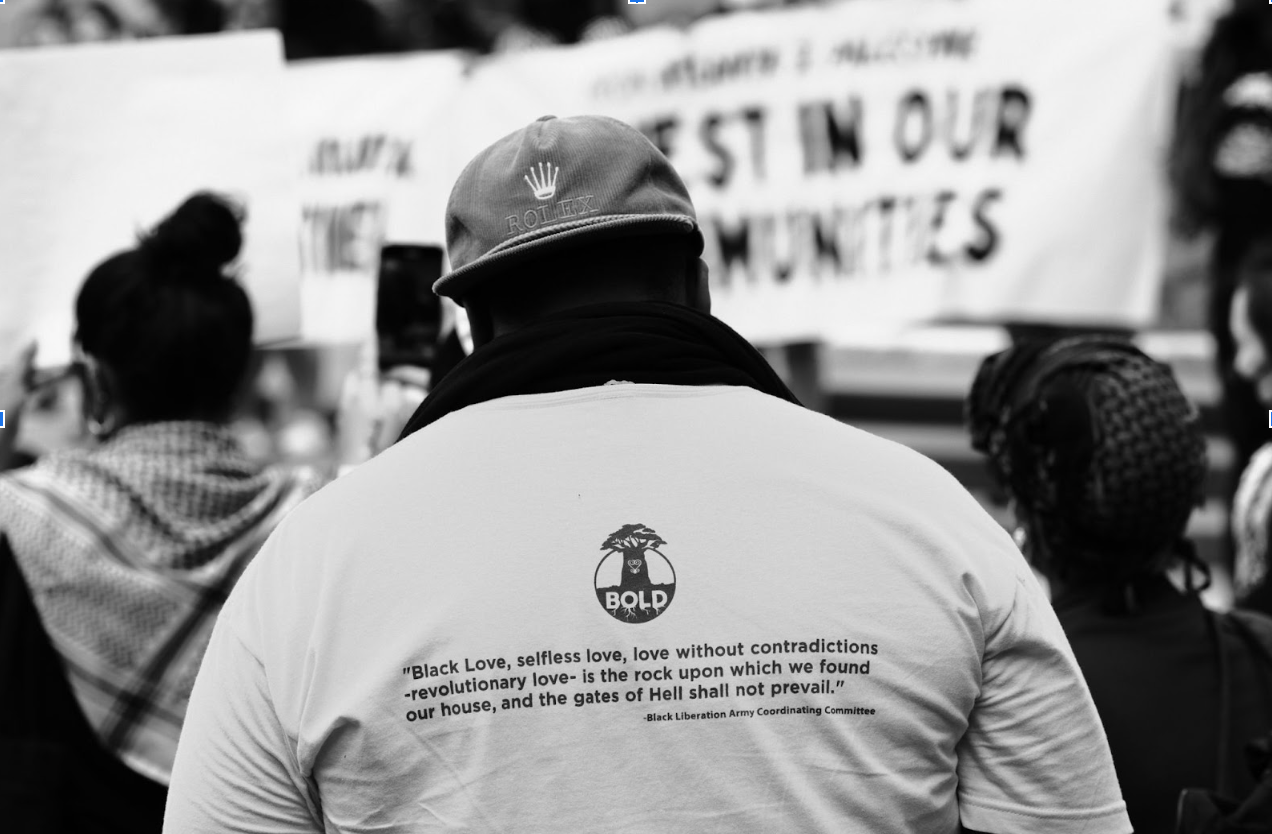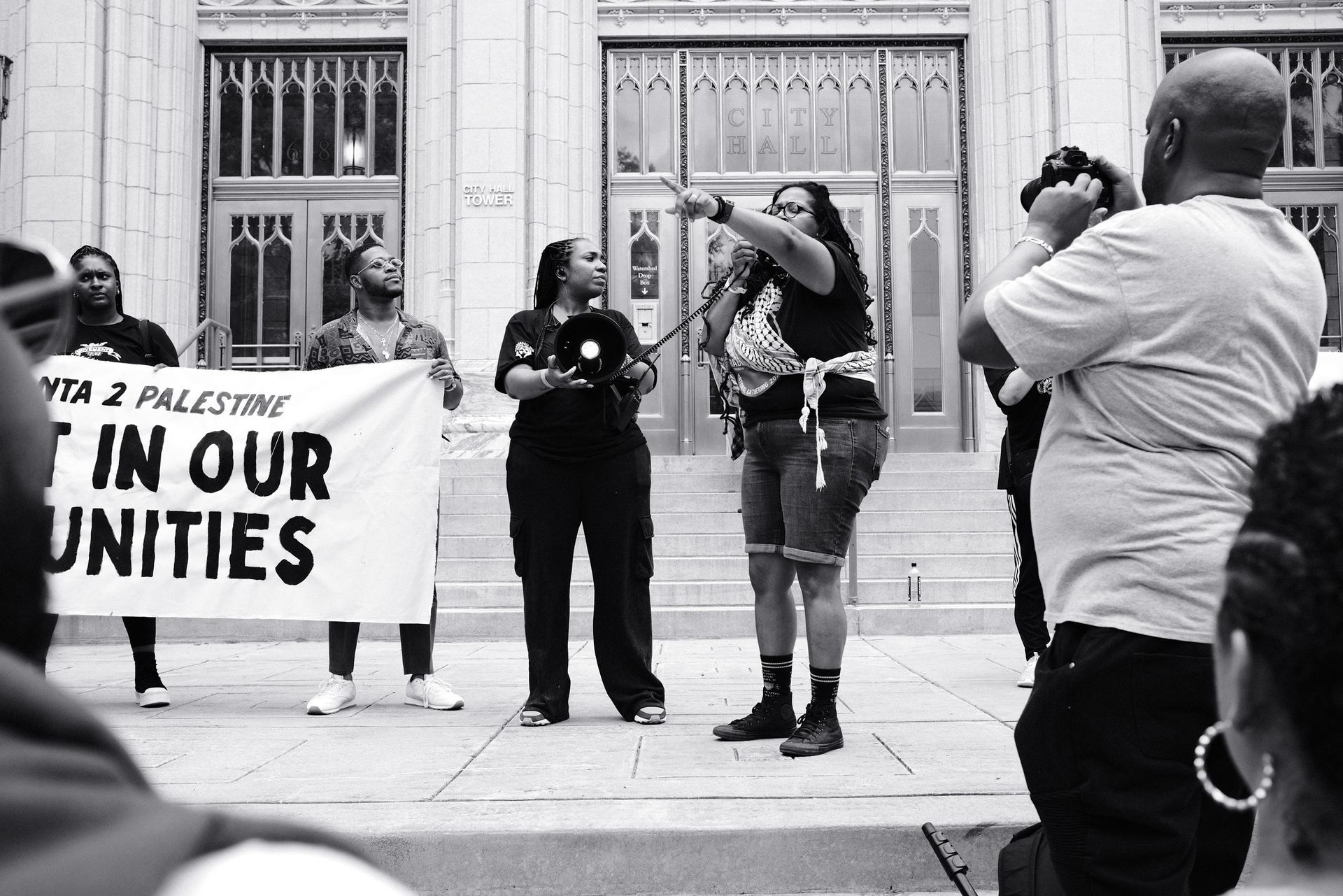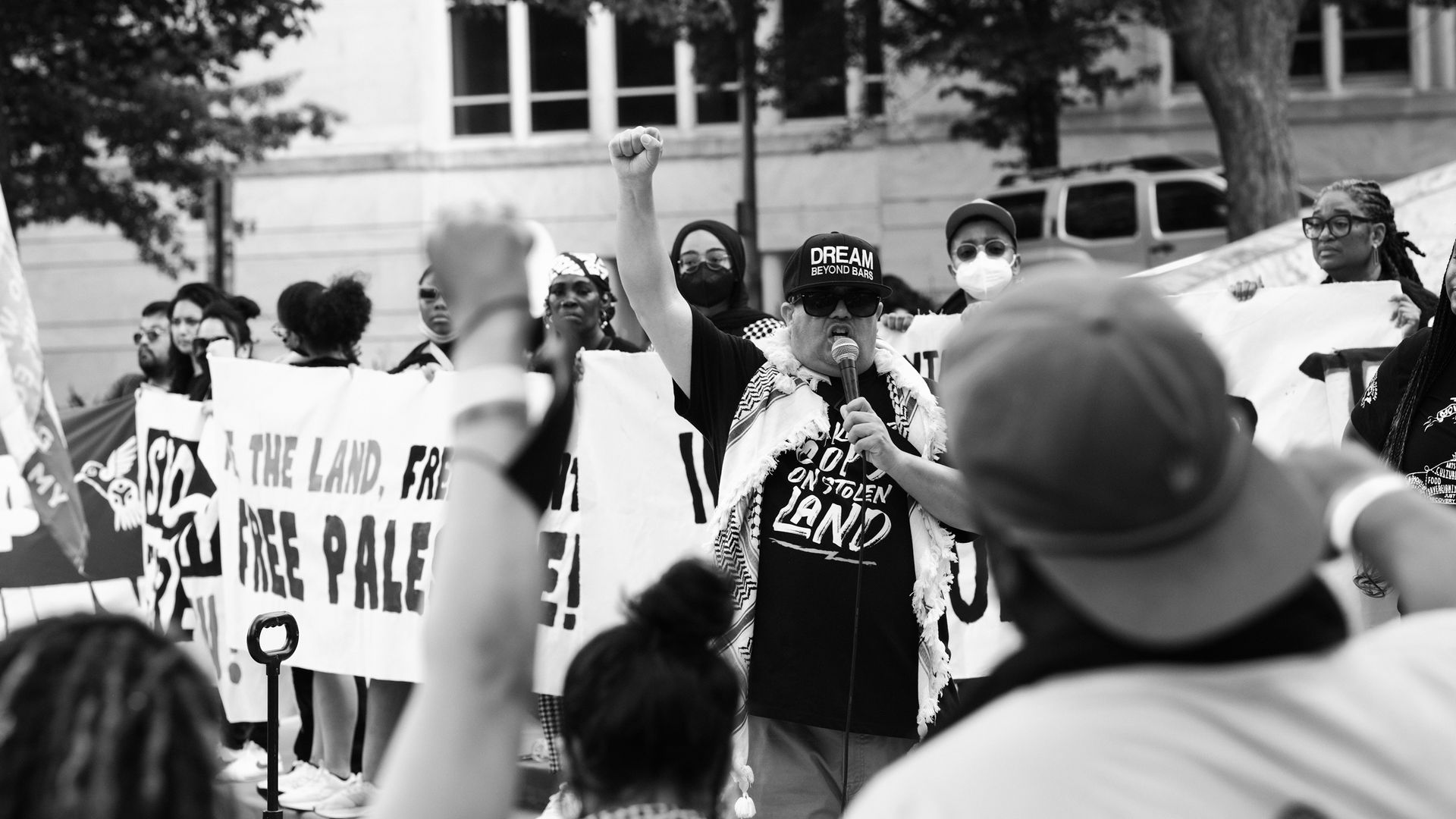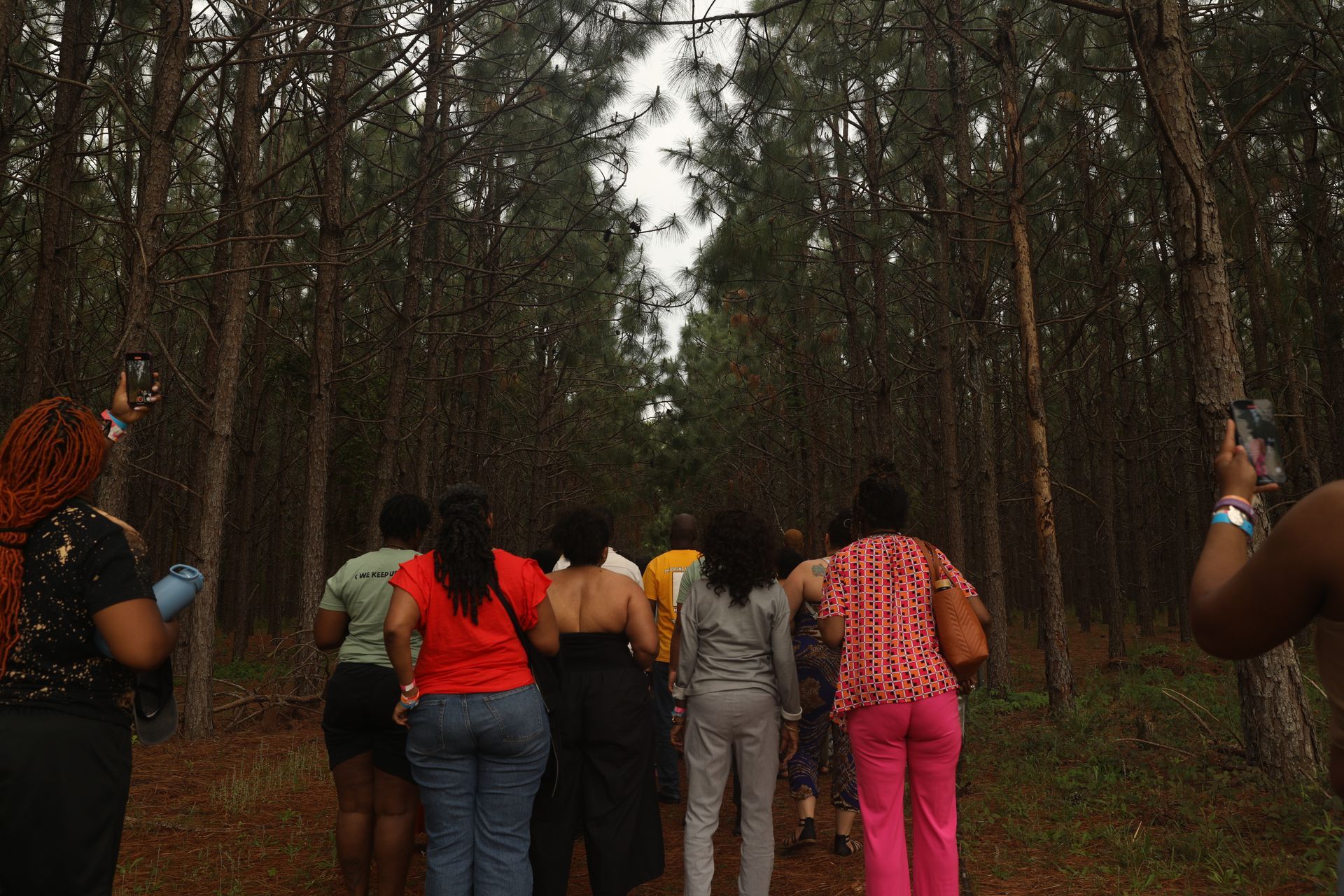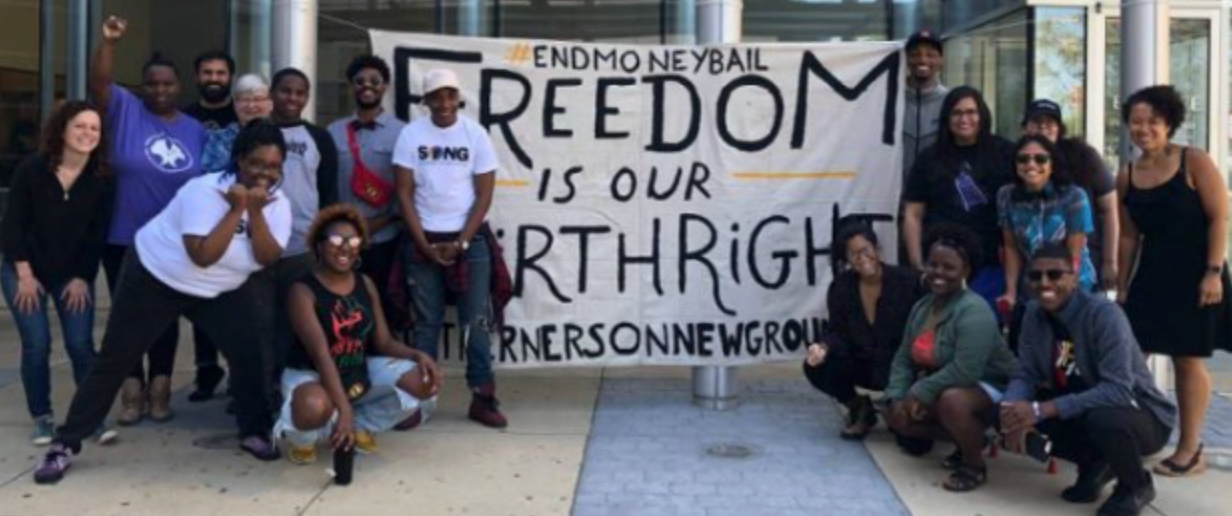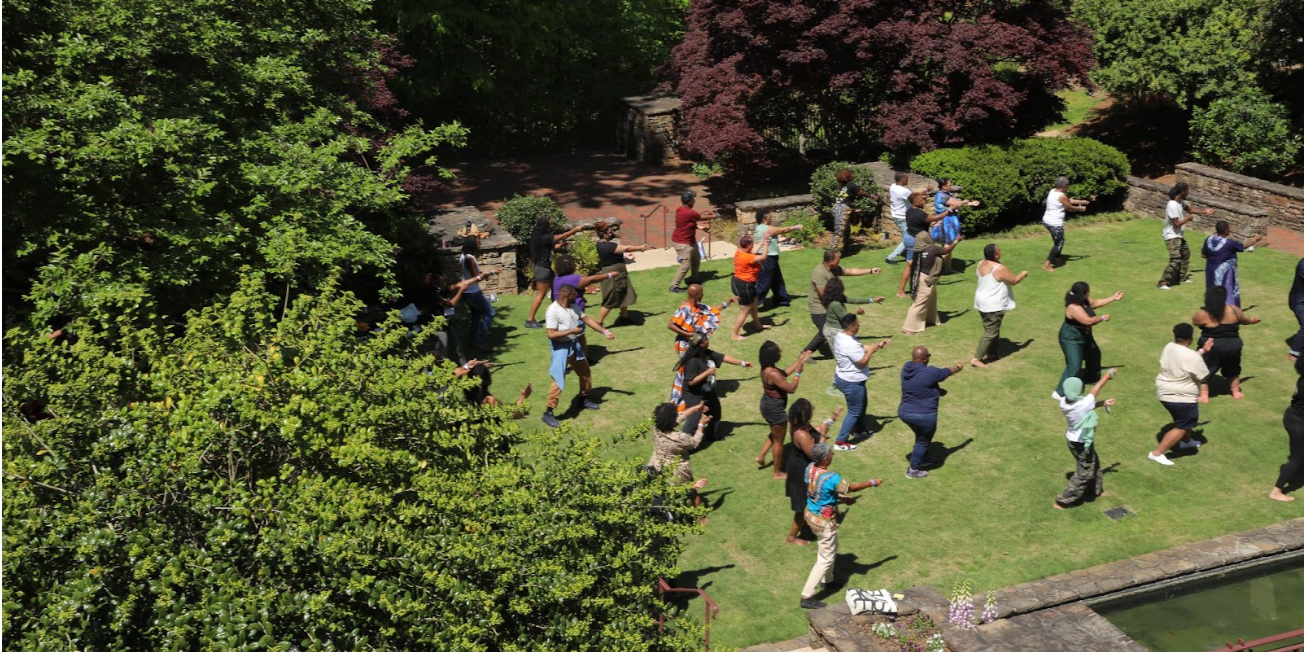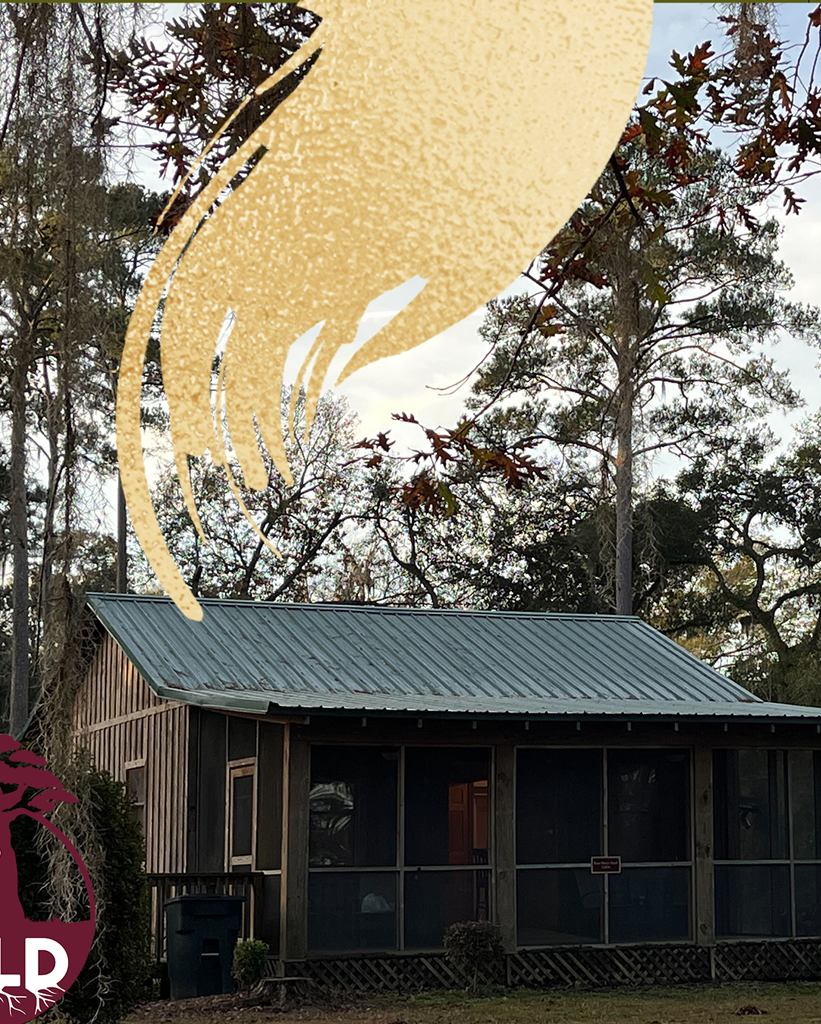The 2024 BOLD National Gathering In Review:
Part 1, Radical Roots
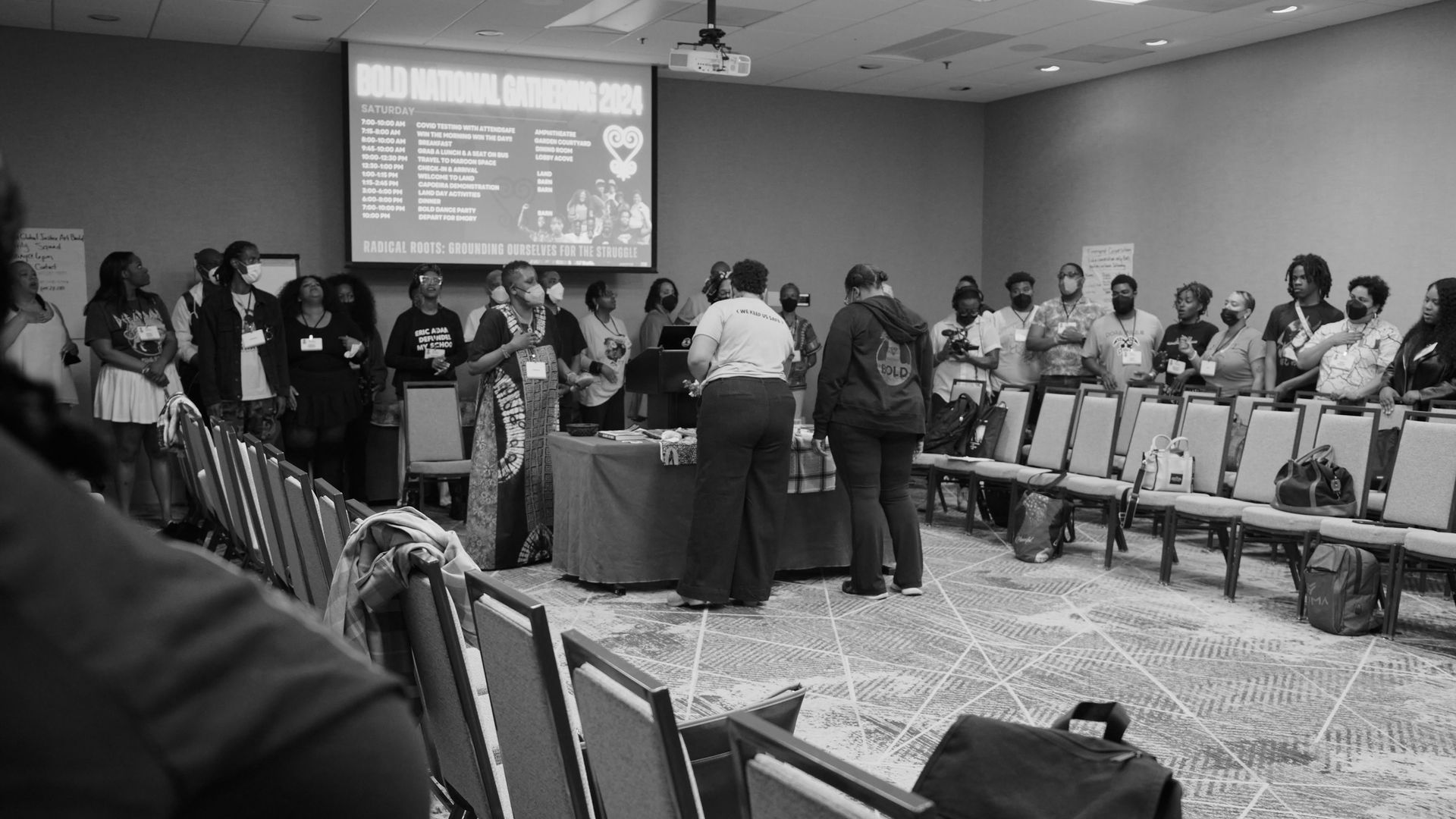
The 2024 BOLD National Gathering in Georgia was EPIC. It was historic, yet beaming beautiful Blackness into the future while centered in the present. We created big toroidal energy yáll! WHAT?!??!!!? If you were one of the BOLD alumni in attendance, you would know exactly what we mean. Regardless if you were there this year or not, we are honored to share this special series with you so you can get a taste of the magic! We invite you to join us on our journey deeper into land stewardship, deeper into restoration, deeper into the woods of transformation…. And embark on the next chapter of Black Love, Black Power, Black Joy, Black Resilience, Black Excellence, and BOLD Marronage!
This BOLD National Gathering was overflowing with collective love and commitment to Black liberation and coordinated action. Our gratitude energy was particularly turned up because it was a gathering of “FIRSTS.”
It was the
FIRST time we’d convened the National Gathering in person since February 2020 - right before the COVID-19 pandemic shut down the world as we knew it. As such, this time around, we developed an incredible team engaged in intentional safety systems all week. Our system worked especially well because we organized an additional team of BOLD alumni experts to keep us all safe, lovingly dubbed
The Dora Milaje, inspired by Marvel’s Black Panther movies. #WakandaForever Seriously though, the team systems we put in place allowed us to hold each other accountable and protect each other.
Photo Caption: BOLD National Gathering attendees proudly show off their daily covid-free test result bands from the week.
Another
FIRST for BOLD was deep and intentional time in breakouts based on regions of the US; our new regional organizers spent time building connections, diving deeper into leading somatic practice, engaging in discussions around the state of the Black freedom movement from a BOLD perspective and began generating commitments to Cumbe formations.
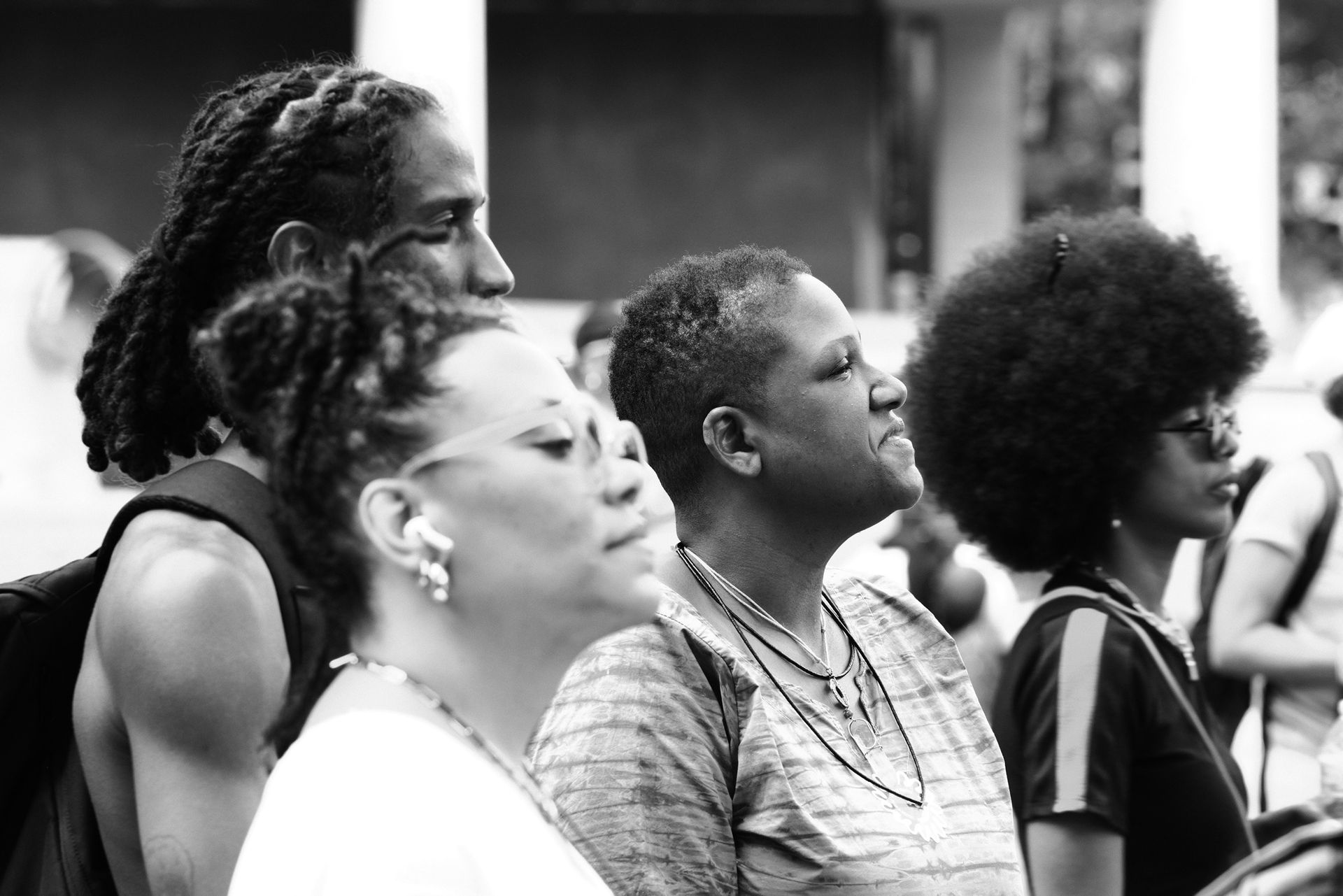
It was also the
FIRST time at a gathering that BOLD alumni marched and rallied together with our allies to #StopCopCity in Atlanta and CeaseFire in Gaza. Huge shout out to
Community Movement Builders,
Grassroots Global Justice Alliance,
The Malcolm X Grassroots Movement, and the
Movement for Black Lives for coordinating such a powerful action. Some of the highlights included a moving speech by powerhouse BOLD alum and M4BL leader
Mary Hooks who reminded us that as global citizens, we have the duty to fight and win against state-sanctioned violence everywhere - including in Atlanta, the 60+
Cop Cities being planned across the United States, and for Palestine!
Caption: Mary Hooks, M4BL and BOLD alumni class of 2015, speaks in front of Atlanta City Hall about the atrocity of Cop City and state sanctioned violence against Black, Brown, and Poor people everywhere. Malcolm X Grassroots Movement (MXGM) member speaks about community values, alternative, and common sense practices to keep our people safe. Grassroots Global Justice member speaks and chants powerfully to evoke Indigenous ancestral power, people power, solidarity, and accountability together in transforming our world to serve all. Free The Land!
As we marched through the streets of downtown Atlanta, shutting down traffic, and navigating the police - our multilingual chants only grew louder. Chants like “STOP COP CITY!” and “VIVA VIVA PALESTINA!” filled the atmosphere and summoned new people into the march. Between speeches by leaders representing students, Indigenous Peoples, LatinX, Asian Americans, and folks across the African diaspora - one thing was clear: The people are united in demanding our government officials divest from death. We demand a safe and free Earth. We demand major investments in public health, housing, education, and freedom of movement for all from Atlanta to Palestine.
And while those three BOLD Nation “FIRSTS” were amazingly coordinated in their own right - perhaps the most inspiring and restorative
“FIRST” of the 2024 National Gathering was taking BOLD alumni to experience
their land deep in Southeastern Georgia.
Hopefully, by now, you’ve heard that BOLD closed on a small regenerative farm and retreat space in Georgia. Maaaaybe you’re one of the fortunate ones who have stepped foot on the land. Regardless, this is where we invite you to stay tuned for the next part of this series, where we’ll share more about the land and the magic that manifested there during the 2024 BOLD National Gathering. Get excited because we will be sharing curated exhibitions of photos from the National Gathering in this series too!
